I'm trying to achieve exactly what's explained here: Creating a threaded private messaging system like facebook and gmail, however i don't completly understand Joel Brown's answer. can any one please explain.
This is what my db tables look like with sample data (I assume i filled it in correctly for demo purposes):

I need to display a list of threads based on LoginId (newest on top) what would the query look like in LINQ? (what i'm asking is in a a group of message threads, give me the 1 newest message in each thread) - just like this is done on facebook.
I need to display ALL the messages in a message thread (LINQ) -> just like it's done on facebook where you click the message and you would see the whole "conversation" in a tread.
Please help! thanks
EDIT -> continuation Joel, is this correct??

Joel, i'm a bit confused, can you please explain (comments/questions in bold):
The idea here is that every time a user starts a brand new thread/message, it starts with a new record in the THREAD table. The user is then added as a THREAD_PARTICIPANT and the content of the message is added to MESSAGE which points back to the containing THREAD. The FK from MESSAGE to USER indicates the author of the message.
LoginId 1 sends a message to LoginId2 => new record is inserted to MessageThread table. Also a record is inserted to MessageThreadParticipant record with MessageThreadId = 1, LoginId = 1 (the sender). And a new record is inserted into Message table with MessageId =1, MessageThreadid =1, SenderLoginId = 1 (correct??)
this is what i have after that iteration:

I think i'm confused because there is no way for Loginid 2 to know that there is a message for him. ?? OR maybe I need to insert 2 records into MessageThreadParticipant?? (the sender and the receiver)-> this way both can see the whole "conversation"??
EDIT2: Joe, I think I could do this:
SELECT
Message.MessageId, Message.CreateDate, Message.Body, Login.Username, Message.SenderLoginId
, (SELECT MessageReadState.ReadDate
FROM MessageReadState
WHERE MessageReadState.MessageId = Message.MessageId
) as ReadDate
FROM Message
INNER JOIN Login ON Message.SenderLoginId = Login.LoginId
INNER JOIN MessageThreadParticipant mtp on mtp.MessageThreadId = Message.MessageThreadId
AND ( Message.MessageId in
( SELECT Max(Message.MessageId)
FROM MessageThreadParticipant INNER JOIN Message
ON MessageThreadParticipant.MessageThreadId = Message.MessageThreadId
GROUP BY MessageThreadParticipant.MessageThreadId
)
)
Where mtp.LoginId = 2
ORDER BY Message.CreateDate DESC;
Please correct me if i'm wrong :)


